Nagarjuna’s Precious Garland
Commentaries on Precious Garland of Advice for a King by Nagarjuna.
All Posts in Nagarjuna’s Precious Garland

“Precious Garland” review: Quiz part 5 q...
Venerable Thubten Chonyi reviews questions from quiz 5.
View Post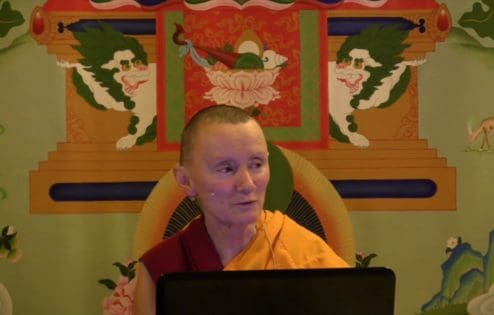
“Precious Garland” review: Quiz part 4-5
Venerable Thubten Samten reviews questions from quiz 5.
View Post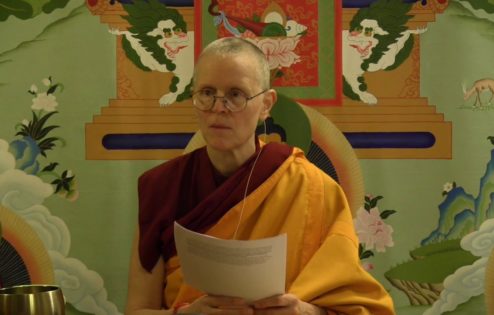
“Precious Garland” review: Quiz part 4 q...
Venerable Thubten Tarpa reviews Quiz 4 questions related to emptiness.
View Post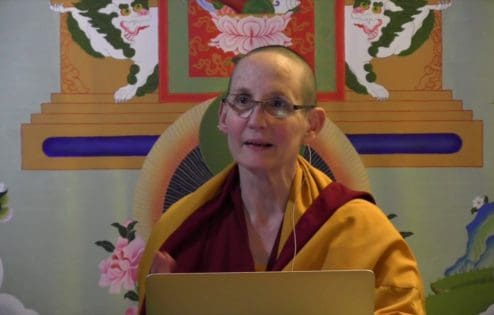
“Precious Garland” review: Quiz part 4 q...
Venerable Tenzin Tsepal reviews the 7-Point Analysis of the self.
View Post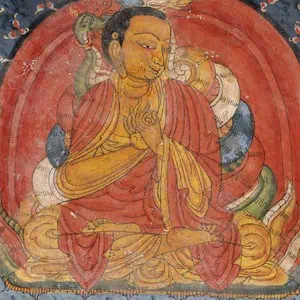
Quiz questions Part 9 for Precious Garland
Questions to review our understanding of the most recent talks on Nagarjuna’s "Precious Garland of…
View Post
Quiz questions Part 8 for Precious Garland
Questions to review our understanding of the most recent talks on Nagarjuna’s "Precious Garland of…
View Post
Quiz questions Part 7 for Precious Garland
Questions to review our understanding of the most recent talks on Nagarjuna’s "Precious Garland of…
View Post
Quiz questions Part 6 for Precious Garland
Questions to review our understanding of the most recent talks on Nagarjuna’s "Precious Garland of…
View Post
Quiz questions Part 5 for Precious Garland
Questions to review our understanding of the most recent talks on Nagarjuna’s "Precious Garland of…
View Post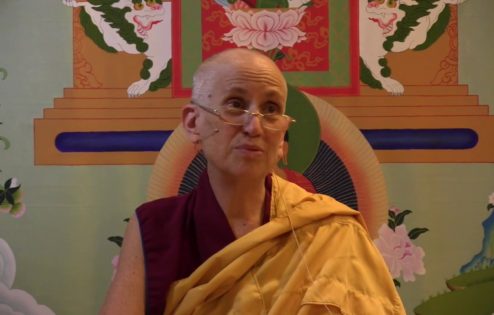
Chapter 5: Verses 424-433
Completion of the commentary on the 57 faults to be abandoned including how to meditate…
View Post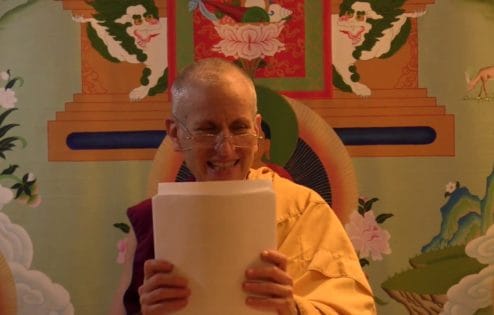
Chapter 5: Verses 413-423
Continued commentary on the 57 faults to be abandoned including the varieties of attachment.
View Post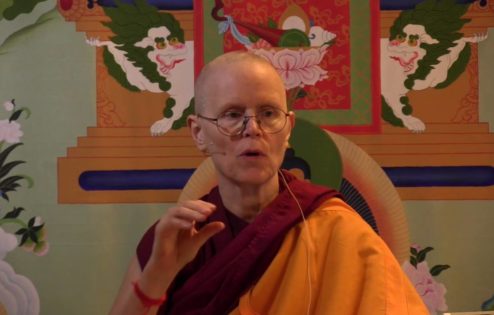
Chapter 4 review: Verses 365-398
Review of the second half of Chapter 4, on why the Mahayana teachings should be…
View Post